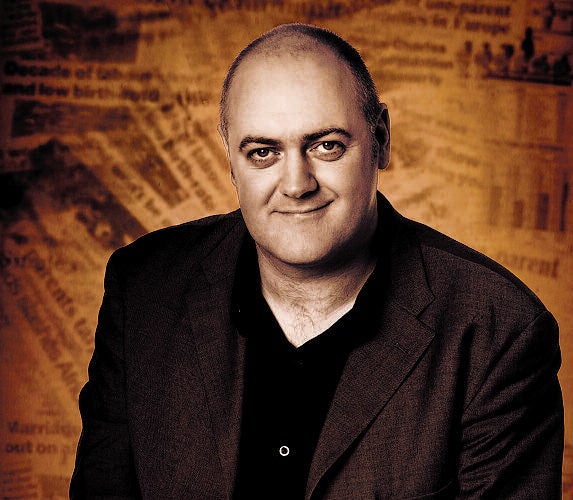Dara O'Briain calls for more taxing exams after scoring A* in 10-minute GCSE maths paper

Your support helps us to tell the story
From reproductive rights to climate change to Big Tech, The Independent is on the ground when the story is developing. Whether it's investigating the financials of Elon Musk's pro-Trump PAC or producing our latest documentary, 'The A Word', which shines a light on the American women fighting for reproductive rights, we know how important it is to parse out the facts from the messaging.
At such a critical moment in US history, we need reporters on the ground. Your donation allows us to keep sending journalists to speak to both sides of the story.
The Independent is trusted by Americans across the entire political spectrum. And unlike many other quality news outlets, we choose not to lock Americans out of our reporting and analysis with paywalls. We believe quality journalism should be available to everyone, paid for by those who can afford it.
Your support makes all the difference.GCSE maths examinations should be made more challenging for the brightest pupils, the comedy presenter and sciences graduate Dara Ó’Briain, has claimed, after passing a genuine paper with flying colours.
Ó’Briain, presenter of the maths show School of Hard Sums, volunteered to test his knowledge by sitting a real GCSE maths paper. He was given just ten minutes to complete the one-hour challenge.
The Irish comic, who took his degree at University College, Dublin, scored an A*, finishing with a tally of 47 out of 60.
But the Mock The Week presenter questioned the depth of knowledge required by the exam. “Are you sure that’s not an ordinary-level paper and then there’s another harder one?” he asked Radio Times. “Surely? What do you do if you’re really bright?”
Ó’Briain sat a GCSE higher-level paper from June 2011, set by OCR (Oxford, Cambridge and RSA Examinations), an examining board considered by some to be the most rigorous in the subject.
“There should be an additional, challenging paper,” he argued. “I don’t mind there being a general paper to help you get some idea of what kids can do. But that’s like the first ten questions that you can just bang off before you get to the meaty stuff.
“There’s nothing unexpected or unusual there. And that’s why they’re not interesting. That’s the most telling criticism of it all – they’re not very interesting questions.”
The comic, who said he fought to make his maths series, which runs on the Dave channel, more taxing and “nerdy”, has become an evangelist for mathematics.
“Maths is the language in which the universe is written,” he said. “It’s innate to the human brain and is a spectacular thing that we’ve discovered. Also it permeates our lives.
“If you have to discuss something in terms of its utility, we’re moving increasingly to being a technological society and therefore you need to be conversant with it.
“But in all honesty, I am over discussing things in terms of their utility, as if education is just training for jobs - it isn’t.”
Analysing his GCSE paper, Radio Times said that Ó’Briain raced through the first two questions, but dropped a couple of marks on a simple calculation of the price of pizza by failing to read the question thoroughly.
The presenter of Dara Ó Briain's Science Club picked up full marks on Question 3, which asked students to trace a graph detailing Olympic men’s triple jump records and repeated that feat on the next question on trigonometry.
He missed out on a mark in an algebra question by failing to write the answer down after doing all the previous workings.
He fell foul of Question 8 on scatter graphs, admitting: “I don’t know what a scatter graph is.” A slip on the final page saw him simplify (√5)4 as 625 rather than 25 (625’s square root).
Ó’Briain’s tally of 47 out of 60, achieved in ten minutes, was above the raw mark of 43 required for the top mark of A*.
Join our commenting forum
Join thought-provoking conversations, follow other Independent readers and see their replies
Comments